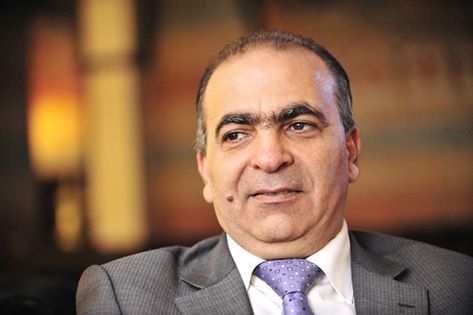There are numerous military powers and nations occupying Syria today, and so while the Iranian-backed militias of various nationalities and Russia share control over the coast, center, Damascus, and parts of the north after seizing Aleppo recently, Turkey and extremist Kurdish nationalist militias and both ISIS and the Nusra Front share control over the country’s north and northeast.
The problem for Syrians is that they play no major role in accepting, rejecting or resisting these occupations. The regime has lost any capacity to practice any form of sovereignty in the areas under the control of Iran, its sectarian militias, and Russia, while Syria’s political opposition in all its institutions has lost the ability to control anything in the areas under the control of Turkey, ISIS, Nusra, or Kurdish militias. The war in Syria has morphed into a conflict which Syrians themselves have nothing to do with except acting as its fuel and its victims.
But does sharing Syria in its current state mean dividing it among these powers?
The facts say that the forces which control Syria today will not be able to coexist within this division. Russian-Iranian interests are not identical to the point of entering a permanent partnership in the areas which they now jointly control, while the aims which pushed both Moscow and Tehran to enter this war and pay the human and economic price to remain in it are not convergent. Iran sees Syria as part of the crescent extending from Tehran to Baghdad to Beirut, which gives them hegemony over the Arab world and surrounds the Gulf Arab states from the north — and especially if it succeeds in encircling them from the south by entrenching its influence in Yemen. The aim of the Russian involvement in Syria was to build permanent military bases on the central coast and return to the international stage as a great force, which could use Syria as a bargaining chip over other issues, such as Ukraine and Eastern Europe — a fact which could lead it one day to make agreements with the West which do not suit Iran. Indeed, weakening and marginalizing Iran could be one of the items of such an agreement, in exchange for a new division of influence between the United States, which wants to decrease its presence in the Middle East, and Russia, which wants to fill the vacuum. For that reason, the coming Iranian-Russian split over Syria is inevitable and one of the parties must resolve its control over the areas which comprise the joint zone of influence.
Some parts of the northern and northeastern areas today are under Turkish occupation (made possible by the Turkish-Russian rapprochement through a deal in which Moscow allowed Ankara to bring its forces into Syria in exchange for the Turks staying out of Aleppo, allowing its destruction and occupation by the Russians and Iranians). Other parts are under the control of Kurdish separatist militias, especially some parts of the Aleppo countryside, Hassakeh, and areas along the northern border. Nusra has control of Idleb, while ISIS has Raqqa and Deir-ez-Zor. These are all areas occupied by forces and organizations which cannot coexist alongside one another. Subsequently, control must be resolved by one party, whom the coming American administration will have the largest role in deciding. However, it is certain that the Americans will support any party who is ready to fight both ISIS and Nusra and help put an end to their presence in the region.
To summarize, in the medium term Syria will be divided according to the forces which occupy its territory into zones of influence — and not on the basis of statelets or sectarian or ethnic cantons as Israel or some separatist forces may hope. The international-regional arrangements and balances will have the biggest role in determining when to end this division and the basis upon which Syria will be reunified. Here we must note that eliminating takfiri groups and groups calling for the establishment of a nation on a religious basis will be a necessary condition set by all international powers for any rearrangement of the situation in Syria.
What is needed from Syrians?
1 – That they do what they can, and as intelligently and quickly as possible, to avoid becoming mere followers and recruits for international and regional powers which are fighting for control over their country.
2 – Renounce all ideas and organizations which adopt designs and projects to divide Syrians on the basis of religion, sect or ethnicity, and focus on the Syrian national idea as a realistic concept which all Syrians can be gathered around.
3 – Return to the political stage in their country as a force which can influence the course of events, accelerate the return of Syria’s independence, and determine the shape of its future political system, whereby it guarantees security and the rights of all Syrians on the basis of full citizenship for all, which cannot allow for Syria to be transformed into a weak state or divided society (as in the Iraqi and Lebanese cases) and which allows the great and small alike to take part in their affairs and have influence over the unity and cohesion of its citizens.
Responsibility for the information and views set out in this article lies entirely with the author.


